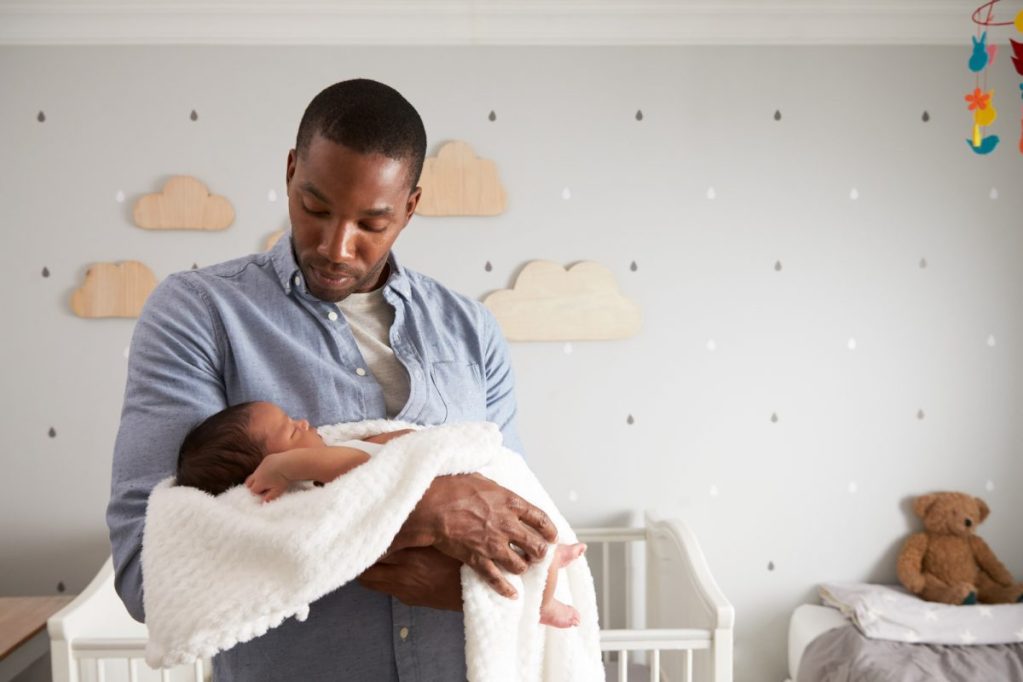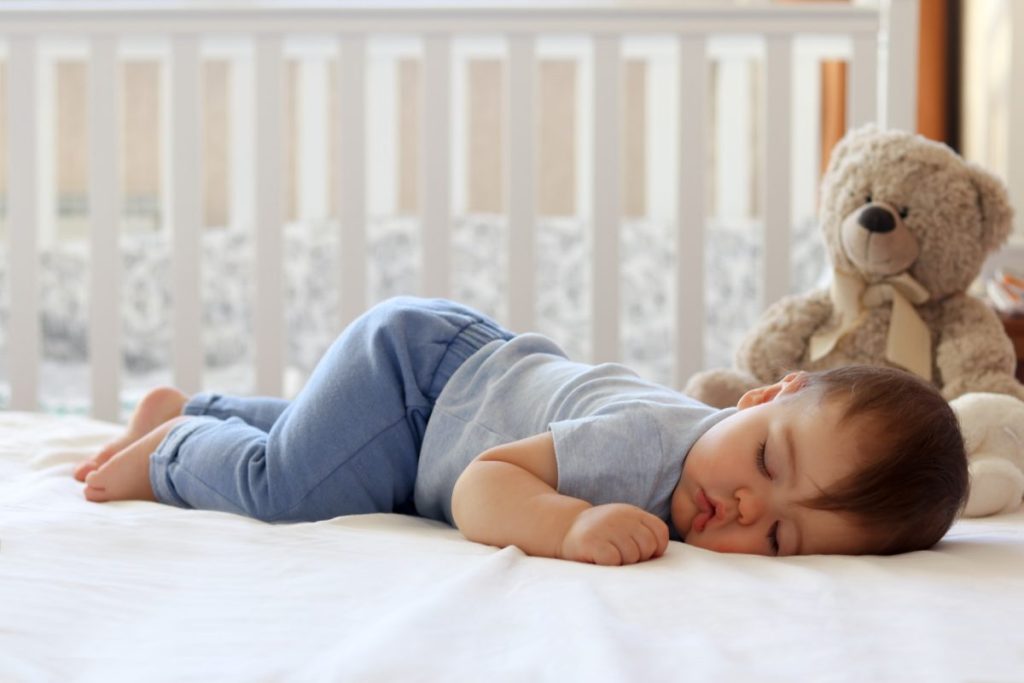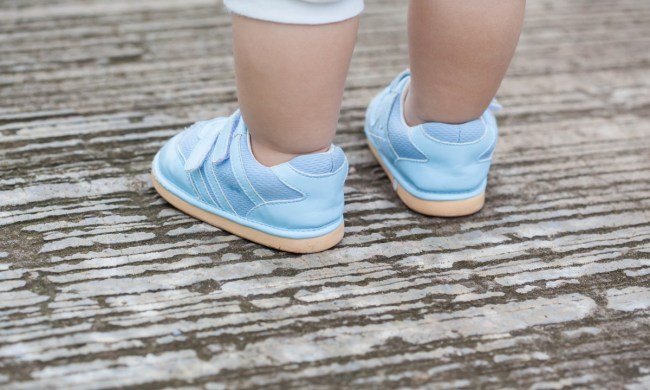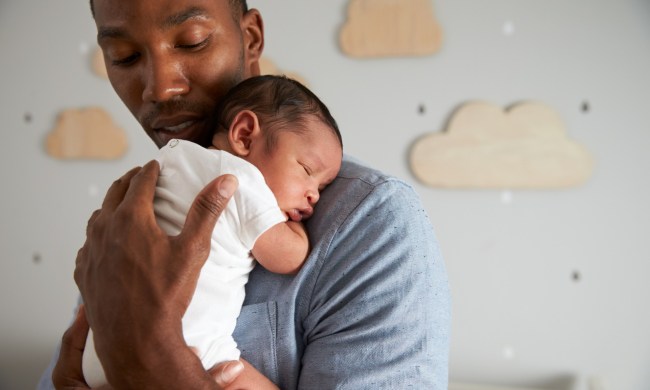
If you’re a new parent, you know sleep is so extremely precious. In some cases, you could be only sleeping when your baby sleeps (if that), making that time all the more valuable. But if you’re finding your baby’s sleep schedule is pretty erratic, and more frequent and longer naps are hurting your routine more than helping it (like if those late-afternoon naps are resulting in later nights), you may feel tempted to wake up your napping baby. Should you though? Are you asking yourself, “Should I wake Baby from long naps?”
Are you facing doubts on whether you actually should wake a napping tot? Turns out, the myth you should never wake a sleeping baby is just that, a myth. There are actually several instances when you should definitely wake that little snoozer. Here’s when and why waking a baby from a long nap is something a parent might have to do every so often.

If naps are messing with the sleep schedule, wake them up
Newborns sleep more erratically than babies that are a few months old and older. But by the time they’re approaching six months old, your baby should have a relatively normal sleep schedule worked out. They should also be getting about the same amount of sleep per day.
Sometimes, though, things interfere with that schedule. Maybe you’re traveling or visiting with family, and nap time just didn’t happen when it normally does. Whatever the circumstance, if your baby is napping to the point they’re throwing off that established schedule, don’t feel bad about waking them up. You’re doing them a favor in the long run.
Just like you feel cranky and off when your sleep routine is messed up (like if you pulled an all-nighter and then tried to get a few hours of sleep in the morning), babies go through the same thing. So, if you find that they’re sleeping more than normal, give them a nudge. The same thing goes if you find your baby napping too close to bedtime, and it’s interfering with how well they respond to their nighttime routine.

If you don’t want their feeding time messed up, wake them up
Should you wake a sleeping baby to eat? Yes — under certain circumstances. Just like babies have specific sleeping schedules, they also have pretty rigid eating schedules. Especially for newborns, it’s important they eat every couple of hours. So, if you find your baby is sleeping through their normal mealtimes during the day, try waking them up to eat.
This only applies to newborns because your older baby will develop a schedule of their own that you won’t necessarily need to interrupt just for feeding. And, once they’re aged up a few months, it’s not as vital they eat every few hours as it is when they’re a newborn and need to gain weight as consistently.
So, if you have a newborn who’s still figuring out their internal schedule, and you know it’s getting close to mealtime, go ahead and wake them up for meals during the day.

If your baby still has night-to-day confusion, wake them up
Night confusion is when your baby sleeps all day (way longer than a nap) and is up all night. It was confusing while being in your belly, and they haven’t figured it out yet. It is so easy to let that baby sleep so you can get stuff done. You see the dishes, laundry, messes, diapers everywhere, and the list of things you want to clean and tidy up while the baby is asleep. And as the sleeping stretches out from one hour to two, then to two to three, and maybe even three to four to five and beyond, you feel great about everything you got accomplished.
But then, you need to get them settled for the night. And that is not happening once baby has slept the day away. Sleeping during the day so you get things done is great, but it could turn into your nemesis if you let it. You have to wake them up and teach them daytime is for awake and nighttime is for sleeping. Keep those naps to two hours or less, and help your little one adjust to life outside the womb.

If you’re concerned about their safety
This one is a no-brainer, really. If you’re concerned at all about your baby’s safety, go ahead and wake them up. Yes, you might have to deal with some crying or screaming, but that’s much better than the alternative.
To ensure the safest sleep for your baby, make sure they’re sleeping on their back and they’re in a crib that’s mess-free. That means no blankets, no stuffed animals, and no crib bumpers. While these items seem harmless and are actively marketed toward new parents, they are a choking or suffocation hazard under certain circumstances. It’s best to leave those kinds of items outside of the crib.
Furthermore, the American Academy of Pediatrics recommends putting your baby down to sleep in their own space (not on the couch or in your bed) and ensuring their crib has a firm, flat mattress.

What’s the best way to wake up your baby?
Once you’ve determined you need to wake up your baby, how should you best go about it? Turns out, the American Academy of Pediatrics has a few tips for that, too. They recommend always waking your baby in a soft, soothing manner. Try talking to or singing to your baby in a calm voice or moving their arms or legs using gentle motions.
If they’re not responding well to that, move on to changing your baby’s clothes or diaper, both of which will rouse them enough to stay awake for the long haul. Think about how you would like to be woken up — with loud noises and sudden movements, or calming tones and softer movements? It’s the same for your baby.
While doctors, friends, and fellow parents might tell you to never wake a sleeping baby, there are a few times you need to listen to your parent-gut and get that little one up. We know sleep is just as precious for you as it is for your baby. But it’s also just as important to know when to trade in sleep for the safety of your precious peanut. Our tips will help everyone get the right amount sleep at the right times, so no one is cranky.


